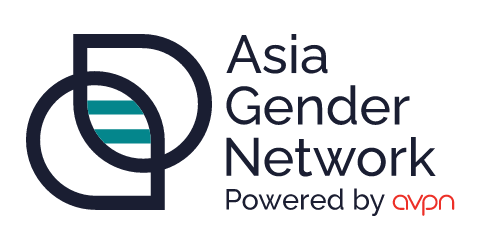Did you know — at the current rate, it will take an estimated 300 years to end child marriage, 140 years for women to be represented equally in positions of power and leadership in the workplace, and 47 years to achieve equal representation in national parliaments. It’s a long fight uphill and a lot of that has to do with who wields the power of decision making. In this episode of Gender Agenda, AGN members and special guests — Kathleen Chew, Group Legal Counsel at YTL Group, Radha Goenka, Director of RPG Foundation, and Mona Sinha, Global Executive Director at Equality Now — join us to discuss the power of gender-inclusive policies and who sets the rules on how gender equality is actioned.
Being on the ground is important, but no one can deny the massive impact policy makes. That’s why the people in charge of creating them matter. “We all know that the rules and the laws were made by men, for men,” Mona said. She shared about how the partners at Equality Now come from civil society, so that their strategy can be informed by locals and their knowledge, “so that these policies are well informed”. Ultimately, when the policies are enacted upon, they are most relevant to the people whose lives are directly affected.
This was what motivated Radha and Kathleen to commission and fund the recently released research paper “The State of Gender Inclusion in Asia-Pacific’s Regulatory Landscape”. Having worked in the impact space over the last 15 years, Radha felt like the natural progression for her efforts was to drive change at a policy level and scale up the impact. Meanwhile, Kathleen’s work has been focused primarily on education in Malaysia, and it was a chance meeting with Radha at an AGN event, that helped her realise there was plenty to be learnt from other countries’ success stories. This led to their collaboration to gather data and insights from their neighbours in Asia to further their work.
The research proved illuminating for both women, revealing how Asian countries differed in the way they dealt with policy. For Radha, it showed how India fared well at the policy level, but faced huge gaps at the implementation stage. For example, it showed that many policies were created for women in the formal sector. However, 60 to 80% of women in India are in the informal sector, indicating that the policies are currently sidelining a majority of women. Kathleen also pointed out that the data collected in this study helped give a more detailed and granular view of women’s responses, and will be useful in future to propagate more gender-inclusive policies.
But how does research translate to action? The answer may lie in getting the data into the hands of decision makers, and giving them a clearer picture of women’s issues. Mona shared an example of how misinformation and a lack of awareness can get in the way of progress: female genital mutilation is done in ten Asian countries, but due to a perception that it’s prevalent only in Africa, there is no law in any of these countries to stop the practice.
The need for education and a deep understanding of the complexities and nuances in gender inequality is clear. Radha cited rape laws in India, and how they omit marital rape as a crime. Kathleen added that in Malaysia, men can pass on their nationality to children born overseas while women cannot. This blatant discrimination had to take years of campaigning to be brought to light. Even then, the bill has yet to pass and there’s still furious debate in parliament.
Mona was in full agreement, pointing out that this is the very reason why this global dialogue is so important “because each country can learn from something that has happened either in the region or somewhere else in the world”. She added that it also helps apply pressure on the government in one region, with the knowledge that other countries have made headway in gender-inclusive policy. “Perception change is very important to make legal change a reality”, she concluded.
What then are the next steps? For Radha, gathering data is a great starting point and hopes they will lead to more concrete ideas and solutions for the paper in future. A direction that Kathleen is keen to start moving towards is benchmarking. In her view, governments are more likely to take action when they are held to standards set by other countries. “And so what I would love to see is to kind of benchmark each country, just examine all the different areas that we’re looking at and the laws and regulations supporting those areas, and see how each country matches against the other or compares against the other,” she said. “I think that would be a great tool to then start the conversation with the lawmakers.”
Listen to the full episode and check out Gender Agenda on Spotify and Apple Podcasts.


